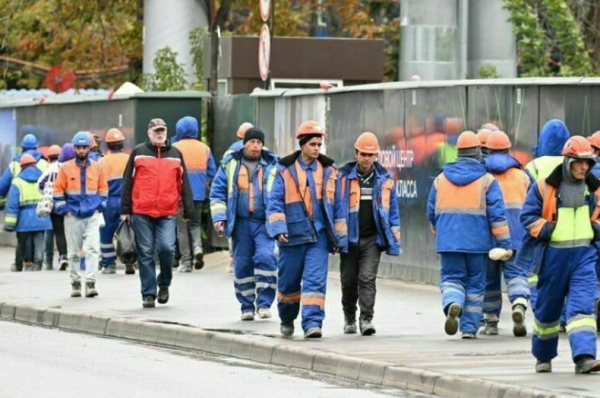LDPR faction in the State Duma proposes to ban migrants from living near schools and kindergartens
A faction of the Liberal Democratic Party (LDPR) in the State Duma (Russia’s lower chamber of parliament), led by party leader Leonid Slutsky, has proposed a bill to prohibit migrants from residing within 200 meters of schools and kindergartens, TASS reported on December 8."We are preparing a draft law that will establish a ban on the residence of labor migrants within 200 meters of educational institutions. We also believe it is extremely important to prohibit the registration of migrants in buildings such as schools, kindergartens, and other institutions where children are present," said Slutsky.According to the explanatory note to the bill, the current legislation does not impose restrictions on where labor migrants can live. As a result, a large number of foreigners often live near educational institutions, "thus creating a potential threat in case of antisocial behavior, which can harm minor students," said the LDPR leader.Slutsky also claims that there have been cases where labor migrants lived in buildings of educational institutions that were temporarily not in use. These buildings were leased out but the purpose of the buildings did not change, he noted.He provided the example of Perm, where a kindergarten building was converted into a hostel for migrants. The local authorities temporarily rented the premises to a private company to house workers, although the building’s designation remained unchanged in official documents—it was still listed as a children’s educational facility.Since the terror attack on Moscow’s Crocus City Hall in March this year, the Kremlin has taken active steps to complicate the lives of migrant workers in Russia, further tightening legislation in what was already a hostile environment for outsiders. In July, Moscow region police chief Viktor Paukov said publicly that his main task was to “lighten up the Moscow region so that it won’t be darkened — as it were — by foreigners.”New laws are continually being introduced, aimed at limiting illegal migration, tightening conditions for migrants' stay and work, and increasing penalties for migrant offenders. In August, Russian President Vladimir Putin signed a law that establishes a legal framework for the deportation of illegal migrants, set to come into effect in February 2025. A registry of controlled individuals will also be launched at that time, which will include foreigners who have committed offenses in Russia.The LDPR is a Russian ultranationalist and right-wing populist political party in Russia. It succeeded the Liberal Democratic Party of the Soviet Union (LDPSU) in Russia after the dissolution of the Soviet Union. The party was led by Vladimir Zhirinovsky since its inception until his death in April 2022. Opposing both communism and capitalism of the 1990s, the party scored a major success in the 1993 Duma elections with almost 23% of the vote, giving it 64 seats of the 450 seats in the State Duma. In the 2021 elections, the party received 7.55% of the vote, giving it 21 seats.Despite the party's name, it has been described as "neither liberal nor democratic nor a party". The LDPR was centered around Zhirinovsky, and is often described as populist, nationalist, or ultranationalist. It has been described as adhering to statism and authoritarianism, and has also been described as fascist, though this label has been disputed. The party, as part of the "systemic opposition", is considered to be traditionally loyal to the Kremlin.

Комментарии (0)